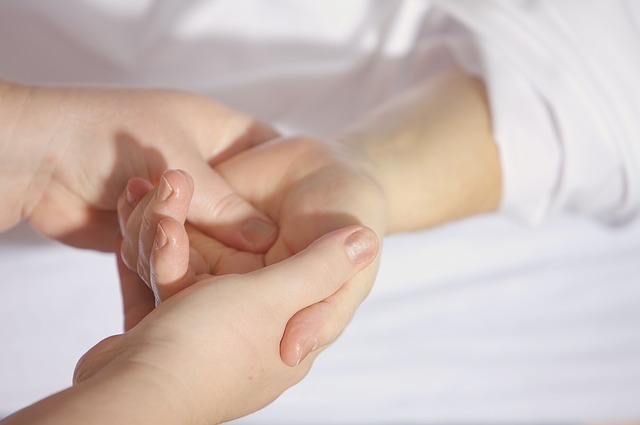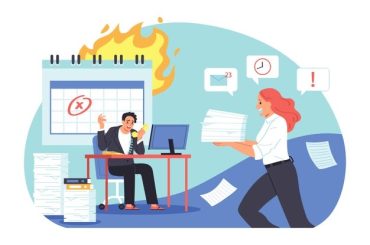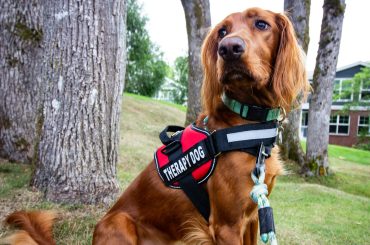 Am I enabling or helping and what is the difference?
Am I enabling or helping and what is the difference?
This is a question I have been asked by clients many times. It is also a question I have asked myself. We can all think of fact patterns that we would consider enabling. However, sometimes the answer is not so clear. Sometimes the answer is, “it depends.” On what does it depend? Usually on a wider set of facts than the specific action we might take.
Your daughter is sleeping off a busy party night. If you want to wake her in the morning before school so she makes the choice to go or not to go, is that enabling or helping? What if you go so far as to drive her to school so she won’t be late? Is that enabling her or helping her? What if she has her own apartment and you call her every morning to make sure she is getting up to go to school? Is that enabling or helping? What if you paid for school and will be reimbursed the tuition if she keeps a passing grade but if she fails it will cause you a significant hardship? There is no right or wrong answer here. The answer will be different depending upon your own frame of reference. But it IS worth talking about.
Your husband passed out on the couch last night. This is not the first time this has happened. He needs to “come to” or he will not get to work and may get fired. Do you wake him to get to work? Can the family afford that consequence? Does it matter if he is the sole breadwinner in the house? What if you are the primary breadwinner? If he gets fired, how will that affect the family’s monthly bills? In this case who will ultimately suffer the consequences – your husband or the whole family? Is that enabling or helping?
If your son is waiting to get a detox bed, and is starting to go into withdrawal, he is in severe pain and there is no bed available today….do you drive him to the dope man to cop? Do you pay for the dope? Does it matter if he is withdrawing from benzos or opiates? Does it matter if there is a hospital bed available?
Your wife has been in recovery from pain pills and has a relapse. Do you give her another chance to start again? Is this the first time she has relapsed? Does it matter if she has relapsed twice in the last 12 months? Does it matter if she has been clean for 5 years? 20 years?
Any one of the above situations could be considered enabling and any one of the above situations could be considered helping. Let’s remember that every situation is our own and while others can make suggestions to us, they cannot tell us what to do, nor should they. The most important focus for us is the 7C’s of the, Be A Loving Mirror program:
- You did not cause your loved one’s addiction.
- You cannot control your loved one’s addiction.
- You cannot cure your loved one’s addiction.
- You CAN contribute to their recovery.
- You are connected to your loved one on a level that transcends their addiction.
- You CAN learn to communicate more effectively with your loved one.
- You are ALWAYS at choice!







9 Comments
Hi Jackie. I really liked your article
Can you please contact me with how I can learn more about the BALM method. My adult son 28 is an alcoholic and uses any drug he can get his hands on! I need help to cope
Thank you , Keri
Hi Jackie,
I just stumbled across this post and you 7c’s of the BALM approach really caught my eye. I’d love to learn a little more about you approach if you wouldn’t mind sending me a message at your convenience.
Thanks
Jamie
Thank you so much for sharing this with us,because it is so hard to know when you are enabling. I have been in the Al-Anon program for 26 years and I can still get cought upi in doing it. I just had one sister die of the disease at 60 years old and a week later another sister almost died of the disease was in ICU for five days. So it is hard at this time because I don’t want to lose her like I did the other sister but my sponsors are helping me out, and so far I have been able to catch myself if I’m going to far. But there are so many people out there that don’t know the difference and need someone like you to be able to get it out there for them. And I do my best with my grandchildren and such to help them know. Once again thank you. Dee
I would really like some information on this method. Thanks
My 27 yr old son has been struggling with opiate addiction for 7 yrs and has been on the methadone program for about a year. He has relapsed twice, that I know of ( he completed a 30 day inpatient program in May) He has a job and as far as I can tell is doing g well, we see him about every day. I take him to get his methadone everyday and drop him at the lightrail to get to work. I feel I’m helping him on his way..your opinion would be greatly appreciated
It’s so ironic that at lunch today with a friend we had this exact conversation about helping or enabling. I have an alcoholic daughter. Family and friends tell me that she will never recover because I am an enabler. I know that in the past I was an enabler, thinking that if I helped she would get better. Since I have gotten better but I’m sure not as good as I could be. I would very much like to hear more about the aproach in hopes that what I do will support her recovery and not her addition.,
Thank you
Joyce
Great insight into a complex problem-
Love to learn more about BALM-
It’s so hard to not blame myself for the addition problems my 3 sons have and are struggling with.
I need to find a way to be able to sleep again. It consumes me.
I would like to learn more about this.